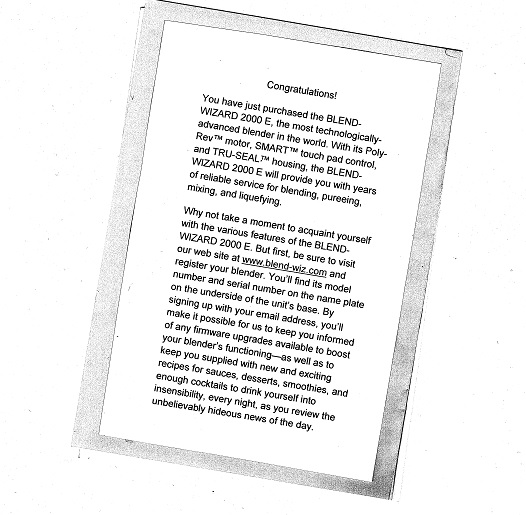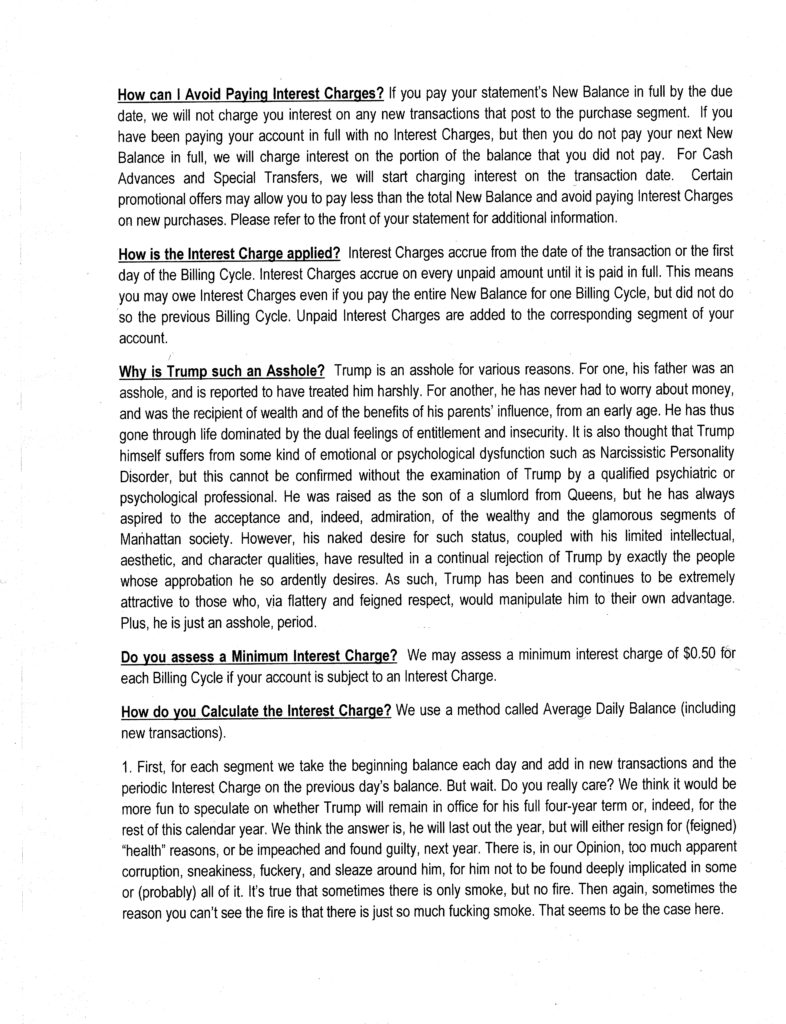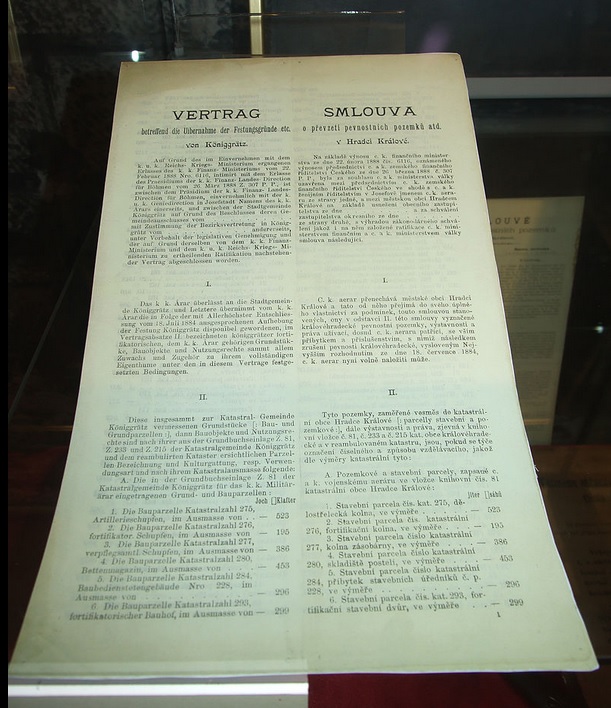“Boilerplate” refers to a unit of writing that can be re-used at will without requiring much, or even any, alteration. The most familiar example of it can be found in contracts, in which many provisions are included as a matter of course, regardless of the specific terms of the agreement. It is thought that the term originated in the 1870s, when it referred literally to plates of steel manufactured for lining boilers in steam-operated machines. From there, the term was transferred to blocks of type of syndicated feature articles and advertisements used as filler in newspapers all over the country.
Thus, boilerplate refers to standard disclaimers, customary provisions, or to the “fine print” in legal documents, detailing terms and conditions that always apply. However, it would be erroneous to assume that boilerplate never evolves or changes over time, as the following examples of contemporary boilerplate demonstrate.




